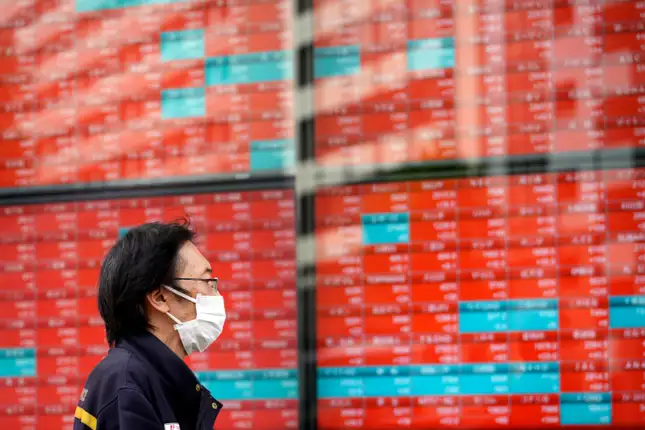The world’s No. 3 economy is grappling with weakening private demand from consumers and businesses, slack demand for Japan’s exports and sluggish wage growth that will continue to drag on consumer spending, which is the main driver of the economy, said Marcel Thieliant of Capital Economics.
“Accordingly, we expect GDP growth to slow from 1.7% this year to 0.5% in 2024,” he said in a commentary.
Hong Kong’s Hang Seng added 3.9% to 18,079.00, while the Shanghai Composite gained 0.6% to 3,072.83 after economic figures for October showed the Chinese economy is holding up even as some indicators have slowed.
Factory output and retail sales rose but property sales fell further. Lending, exports and inflation also have been lower than expected.
Australia’s S&P/ASX 200 jumped 1.4% to 7,105.90. South Korea’s Kospi surged 2.2% to 2,486.67.
On Tuesday, the S&P 500 jumped 1.9% for its best day since April. The Dow Jones Industrial Average rallied 1.4%, and the Nasdaq composite gained 2.4%.
The rally followed a highly anticipated U.S. inflation report that showed overall price increases slowed last month, raising the odds the Federal Reserve may refrain from further market-crunching interest rate hikes.
The Fed has yanked its main interest rate to its highest level since 2001, up from virtually zero early last year, in hopes of getting inflation back down to 2%.
Tim Waterer, chief market analyst at Kohle Capital Markets, noted that the markets were already looking toward other U.S. data expected in upcoming sessions, such as the producer price index and retail sales numbers.
“Asian equity markets have followed the positive tone set by Wall Street. But it will be PPI and retail sales data which could decide whether the buoyant mood on equity markets can be extended,” he said in a report.
In energy trading, benchmark U.S. crude gained 13 cents to $78.39 a barrel in electronic trading on the New York Mercantile Exchange. It was unchanged on Tuesday. Brent crude, the international standard, picked up 18 cents to $82.65 a barrel.
In currency trading, the U.S. dollar rose to 150.36 Japanese yen, nearly unchanged from 150.37 yen late Tuesday. The euro cost $1.0848, down from $1.0881.








